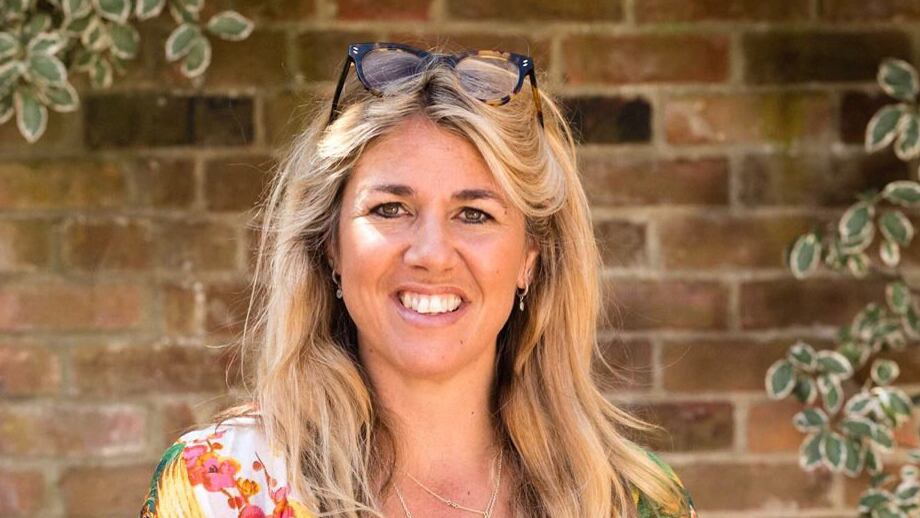Every restaurateur has their all-too familiar Covid lockdown story - of forced closure, furlough, anxiety about whether there might even be a business on the other side - but Emma Schwarz’s is slightly different. When the UK shutdown in March 2020, the former retail expert didn’t yet have a restaurant, having been locked in negotiations with two separate landlords on trying to open her first place. With no restaurant to close and thus no significant overheads to keep paying or staff to worry about, some might have regarded her situation as a near miss – but not Schwarz.
This is partly down to the fact that she had spent the best part of two years discussing terms with the landlords and around £10,000 on architect fees she wasn’t prepared to waste. Yet primarily it’s because Schwarz is someone who, when she wants something, she makes it happen.
“When lockdown was announced I went from having a dream of opening a restaurant to home schooling three kids,” Schwarz recalls. “A month passed, and I went for a walk and spoke to a good friend of mine and talked about how my dreams had been taken away from me, and they said to me ‘if you really want to do it, find a way’.”
Find a way she did. Schwarz approached both landlords and wrote them a “long gushing” letter asking them to rent her the venues without having to sign a lease. Her plan was to create a slow food drive-thru using local producers impacted by the lockdown - farms, out of work bakers and caterers - where people could order online, book a slot and then drive in to collect.
As it turned out, the owners were in a charitable mood and, with the help of her children, a basic website was created featuring more than 100 local products. By targeting a database of people who had come to her previous retail events, the enterprise ended up serving around 130 people each week for three months over lockdown, even creating a chef-made ready meal night once a week to supply to people who didn’t want to cook.
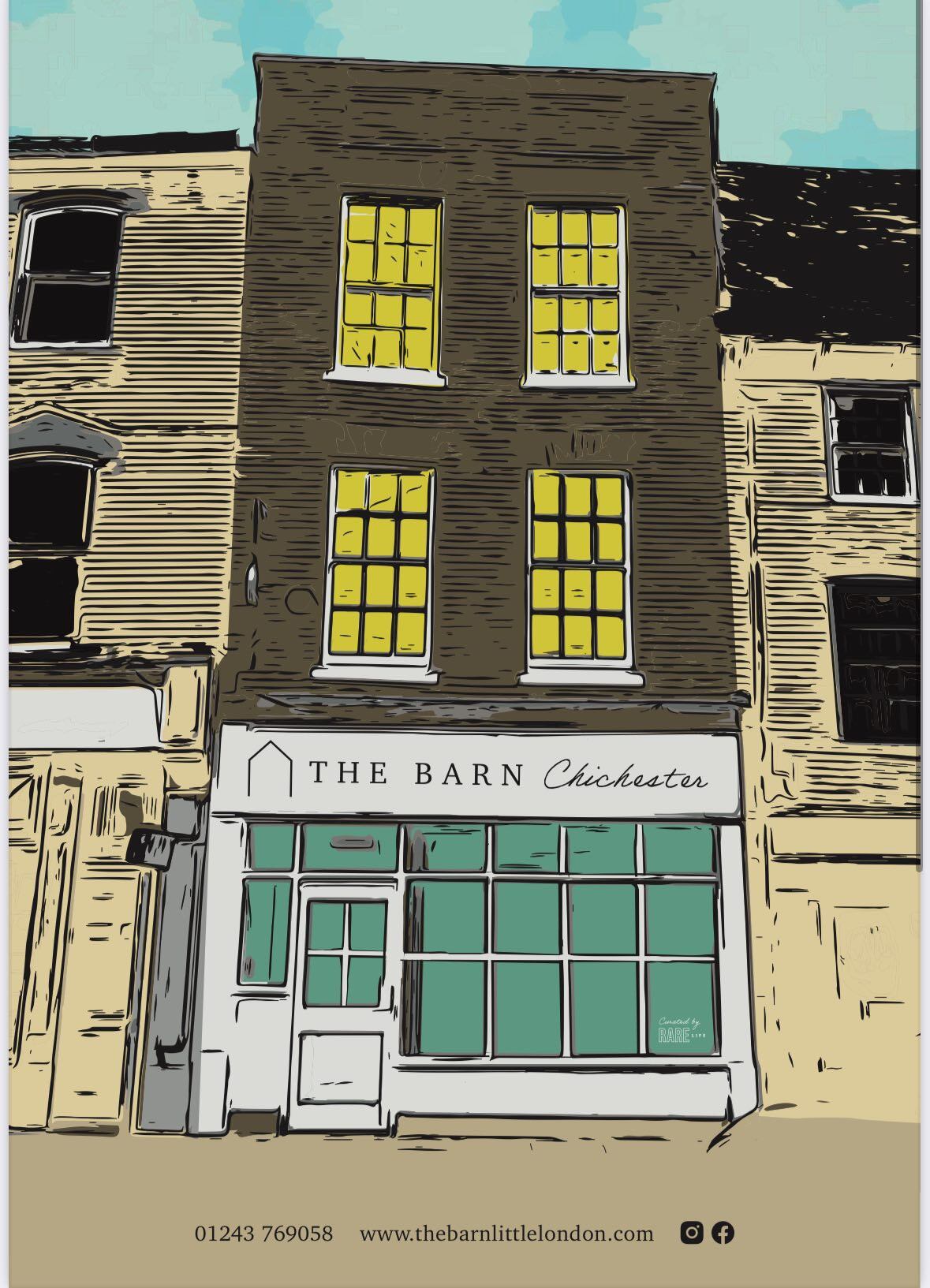
A restaurant through a retailer’s eyes
Today, Schwarz’s impromptu farmers market style drive-thru is a thing of the past, but its ethos lives on in The Barn, the restaurant, shop, bakery and deli she opened later in 2020 having finally agreed permanent terms with her landlords. Yet the story of The Barn can be traced back to 2018 when Schwarz, disillusioned not just with the lack of places to eat but with the stranglehold that supermarkets had over the UK’s food and farming system, decided to do something about it.
Describing herself as “a retailer, not a restaurateur”, Schwarz was born and brought up in the south coast town of Chichester, but her job in retail, climbing the ranks of Marks & Spencer, meant she had spent 12 years living in London.
We want to disrupt what’s happening with restaurants in a regional setting across the south coast
“I loved the combination of independent and neighbourhood restaurants and retail in London,” she says. “When I moved back down here in 2009, regional shopping centres were so homogenised. I took a career break for two years to be a mother and there was nowhere I wanted to go for brunch. That was when the seed in my head was planted.”
Building on her extensive retail experience, Schwarz set up a shopping events business that included holding a retail and food Christmas market at nearby Goodwood racecourse each year. The market hosted about 100 suppliers, around 30 of which were part of the independent food scene, and it was the influence of these people that sprinkled more water onto the seed in her head.
“In my experience of doing that market it was always the food people that I loved the most because they were never in their business for money but for a love of food or the heritage associated with it,” she says. “It got me thinking why there wasn’t more good food available. We’ve got a few farmers markets and then we have the supermarkets, which account for 85-90% of the UK’s consumption of food. That horrified me.”
The birth of The Barn
On the back of her successful Goodwood market, Schwarz was approached by Chichester council to take over a courtyard that had been created as part of a deal with TK Maxx when the retailer took over the town’s small shopping arcade Sadlers Walk. The plan was to get 30 suppliers together on Fridays and Saturdays for a farmers market, but Schwarz had other ideas, with designs on a barn building to one side of the courtyard and a second building to the other.
“I thought that rather than a market I could do restaurant and a bakery that had retail as well. If you’re going to change the way people experience food you’ve got to get them to sit down and eat it, whether it’s Goodwood bacon or really good sourdough, and then enable them to buy it afterwards.”
Having built a rapport with both landlords during lockdown, on 23 September 2020 The Barn was born, with a bakery and deli in the building accessed by a small side road, and a restaurant and shop in the former barn building accessed via the courtyard.
A second lockdown then ensued, not only forcing Shwarz’s newly opened venture to close but also putting paid to her plans to run a Christmas market at Chichester cathedral. Yet again she turned a setback into an opportunity.
Having had a conversation with her accountant who advised her she would need to think about outside trade when The Barn reopened, she rang up the man who was going provide sheds for the market traders and asked if he could loan them to her for a year, after which time she’d pay him. Again, the response was in her favour and thus the courtyard became home to a host of sheds with tables and chairs for outside dining.
When you’re up against it you make the best decisions because you have to. I look back and am utterly grateful for going through Covid with this experience
“When you’re up against it you make the best decisions because you have to,” she reflects. “It required a lot of resourcefulness and tenacity. I look back and am utterly grateful for going through Covid with this experience.”
Since then, further expansion has taken place. In 2023 Schwarz took on the former Thomas Cook site on the town’s East Street that backs onto the barn building, raising money from four friends to fund the venture. The townhouse, as she refers to it, opened in the spring, becoming the site for the new bakery and deli, and 14 months and a lot of red tape later she was finally allowed to knock through to the barn building to create a larger bakery, shop and restaurant space.
Then, early this year, the former deli was transformed into a 36-cover wine bar and kitchen, enabling the business to have an evening offer for the first time.
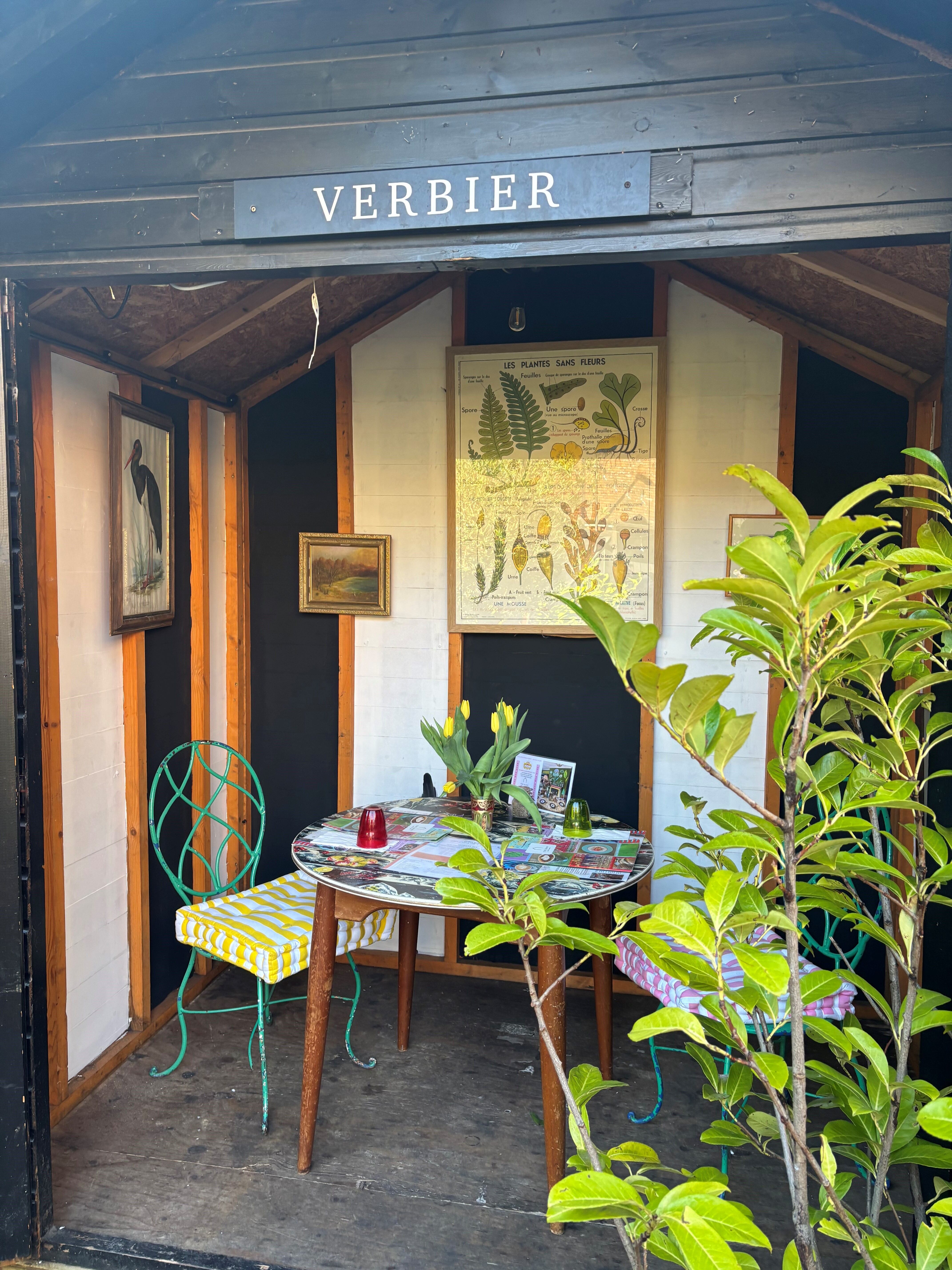
An eye for detail
It is within one of these outside sheds - or chalets as they are more affectionately known, having been named after well-known ski resorts in remembrance of a time when people could travel - that I meet Schwarz. As well as having a long career in retail, she has spent time as an interior designer and as a consultant to Robin Hutson’s The Homegrown Hotel Group, which is behind The Pig hotel and restaurant brand, all of which makes sense given the restaurant’s look.
The style of The Barn and its chalets could best be described as vintage chic - furniture is mismatched, there is an abundance of art and foliage, shelves spill over with various trinkets and books on food and gardening, giving the overall feel of curated chaos. It’s all rather charming and, dare I say it, reminiscent of the original greengrocer-cum-cafe Bill’s in Lewes.
“The whole thing became this theatrical experience,” Schwarz says of The Barn’s overall feel. “Two things really excite me, the interiors and the food. Bill [Collison, Bill’s founder] definitely influenced me, I loved the one he started in Lewes. The courtyard is influenced by Petersham Nurseries, and I worked for Robin Hutson for three and a half years, so The Pig has influenced massively the eclecticism as well as the vintage stuff. [The Barn] is a melting pot of all those places.”
The food at The Barn also takes a similar approach to that at The Pig, which supports local producers with its 25-mile menu. Schwarz is passionate about sourcing the best ingredients from local businesses and, as another string to her bow, is chairperson of Slow Food Sussex and a non-executive director and trustee of food waste charity UK Harvest, for which The Barn has so far raised nearly £100,000 by passing on its service charge.
“We have made our name through serving breakfast, brunch and lunch, being as seasonal as possible, and cooking from scratch. I centred the whole business on not making money at the start and not pushing how much margin to make on the plate and instead pushed for how we can celebrate local seasonal food that tastes amazing. Those elements have come first, which has meant the target margin was lower than most people want for a very long time.”
The Barn’s menu changes every six to eight weeks with the morning and brunch offer divided into sections for eggs and signature dishes such as Welsh rarebit and kedgeree, while over the page are dishes featuring seasonal produce. Wild venison currently features heavily, and Schwarz is “about to go nuts with wild garlic”.
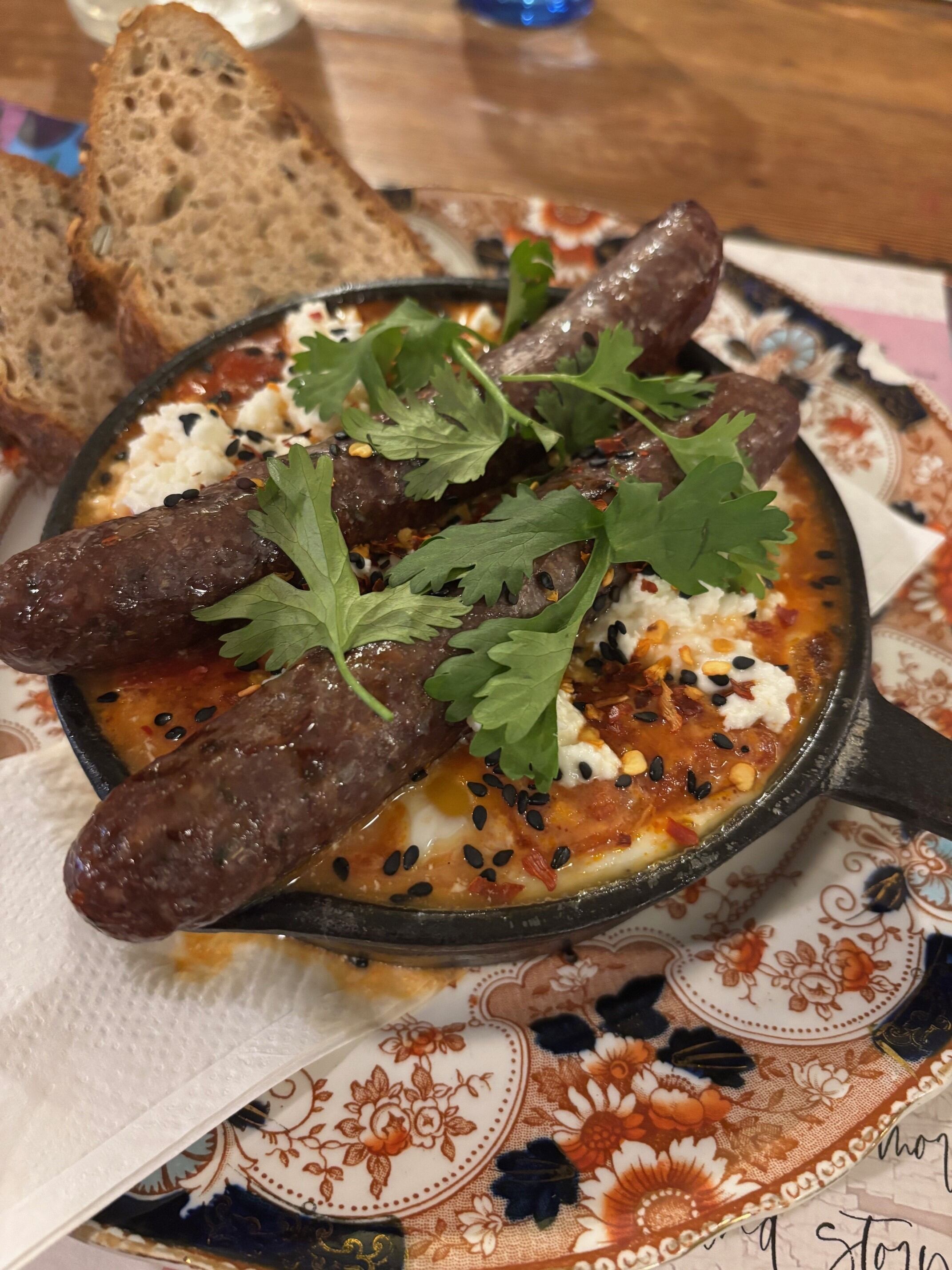
With the wine bar and the accompanying evening menu the kitchen has been able to channel its creativity in different ways. On offer is a small plates menu where only on closer inspection does it becomes evident that all the dishes are vegan - options include roasted king cabbage with beetroot and blood orange sambal; fried Jerusalem artichoke with maple and smoked paprika aioli; and twice cooked Pink Fir potatoes served with harissa, pomegranate molasses, pink pickled onions and chimichurri.
“When you label something as vegan immediately people categorise it in a negative way,” she says. “We’ve got a vegan chef and when we know we’ve got a vegan customer in it’s nice to tell them that can have anything off that menu.”
Carnivores are appeased by a super tight meat offer that is currently venison only - either a wild venison ragu or wild venison haunch - “because that’s the meat we should be eating at the moment” - but grazing plates also include Carlingford oysters; a boozy chicken liver parfait; and a Calcot Farm and Brindisa charcuterie board.
Gone are the days on the high street when you can just be a restaurant. People want a brand to feel close to and more spaces where they can just hang out
As it beds in, Schwarz intends to be more adventurous by introducing offal, either in the form of a classic liver and bacon or something else. “I’ve got the idea for an Andrew Edmunds type dish. I want to say that we’re the type of wine bar where you can come and get a decent supper, whether that be an omelette Arnold Bennett or a burger. We want to keep it simple.”
Though it’s still early days, the performance of the wine bar has been promising. Schwarz estimates that 30-40% of its clientele are existing customers and the rest are new, with a customer demographic of people from their twenties to their seventies. “The appeal seems very broad. People are attracted by the ethos of the food and the quirky interior.”
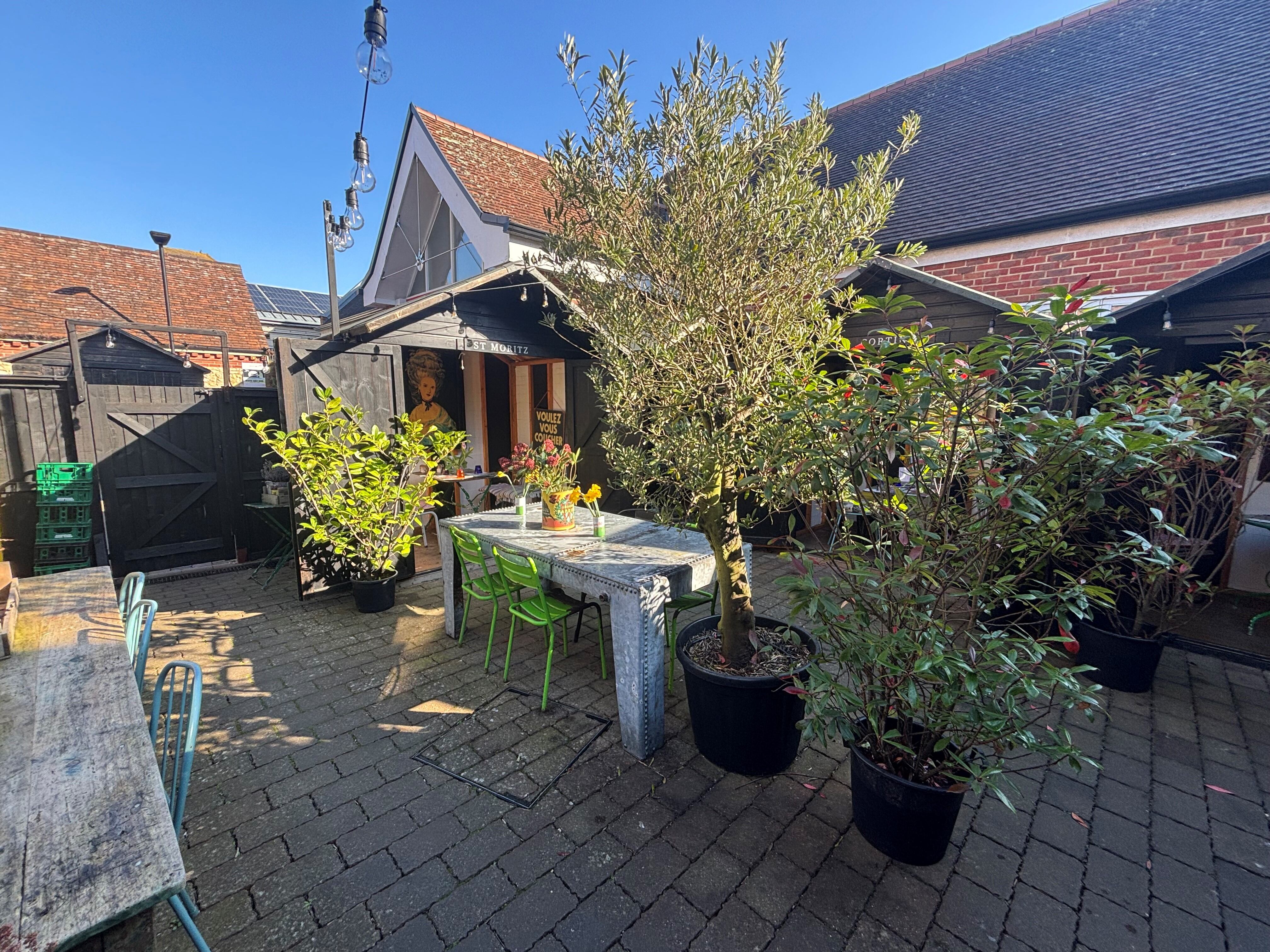
A bold blueprint
Given the time it has taken, and the obstacles needed to be overcome to get The Barn to where it is today you would forgive Schwarz for wanting to take time to smell the flowers dotted all around her venue. Instead, its success has redoubled her energy to spread its influence further afield. She is actively looking for a site in the Surrey town on Guildford and this is just the start of an ambitious plan to have a network of similar venues.
“I’ve earmarked eight locations on the south coast,” she says. “We don’t want to be a chain but what we want to do is disrupt what’s happening with restaurants in a regional setting across the south coast.”
Growth won’t come at the expense of The Barn’s founding principles, and she uses the Richard Caring-owned Bill’s chain as a cautionary tale of how she doesn’t want to scale. “We all know how that brand started and how it is. Everyone has got their journey for all sorts of reasons, and I want to control my journey.”
This, she says, will most likely take the form of a joint venture or a franchise structure so that the owner, whether it be a retail director or chef director, has a stake in the business. “I want to take on people who properly care about what’s gone wrong in food. That will help protect how they are sourcing for that kitchen and sticking to our policy of not going outside a certain radius to source ingredients.”
For consistency, every menu will be broadly the same but tweaked as per its location, but it will unmistakeably be part of The Barn family. “They will all have the combination of a deli, bakery, restaurant, lifestyle shopping, and wine bar,” she says. “I want you to come for flat white, or avocado and toast, do a bit of shopping and book in for dinner. There are a lot of things to do under one roof here.
“Gone are the days on the high street when you can just be a restaurant. I’m not talking about restaurants in general but on the high street people want a brand to feel close to and more spaces where they can just hang out.”


